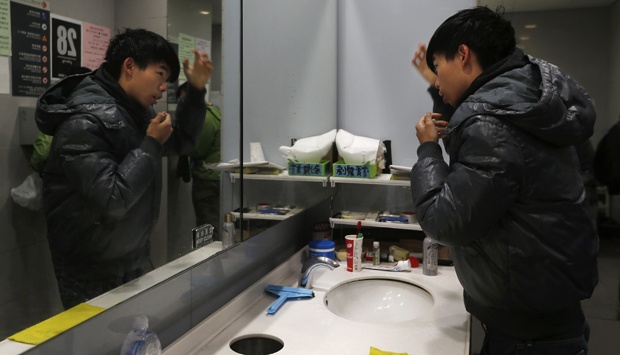Why Indonesia's Young People are Swiping Off the News
Translator
Editor
5 May 2024 19:03 WIB

By: Ignatius Haryanto, a journalistic lecturer in Universitas Multimedia Nusantara, Serpong, Indonesia.
The next generation of news consumers in Indonesia don't trust the media. Fixing the problem might require a re-think of how news is written and delivered.
Almost four out of ten people avoid the news. Some don't consume news at all, while others limit it to certain topics. Those who avoid news are more interested in more positive journalism, or solution-based journalism, and less interested in breaking news.
In Indonesia, news avoidance is also happening. Working out the causes and the effect it will have on democracy if it continues is a vexing question.
Indonesia has a literacy rate of 96 percent. But far fewer are reading the news. One survey found household members who read newspapers or magazines amounted to 43.52 percent and only 22.05 percent read news or articles on electronic media/internet.
In the context of the 2024 Edelman Trust Barometer, Indonesia has 70 percent trust in the media. It would be considered low.
The report highlights that media is actively distrusted by the public and most institutions, including media, are not trusted to introduce innovations to society. Therefore, a 70 percent trust level falls below the desired threshold for fostering trust and acceptance of innovation, but still good enough for news to be a reliable source of information.
The COVID-19 pandemic also contributed to news avoidance. With the outside world largely shut down, people spent a lot more time in front of screens. This has created its own news fatigue, both with the mainstream media and social media.
Indonesia is not alone in avoiding the news. The 2022 Digital News Report states that the phenomenon of news avoidance is increasing sharply in many countries. In Brazil and the UK, the numbers have doubled (54 percent in Brazil and 46 percent in the UK) in the last five years. Many of the respondents surveyed mentioned that news has a negative effect on their mood.
The same report also states that young people and people with less formal education say they avoid the news because they find it difficult to understand. This suggests that the media should simplify the language they use in writing news or the news should be better explained, perhaps by contextualising complicated stories.
Meanwhile, the Digital News Report in 2021 stated that news avoidance in the US increased sharply following the election of President Joe Biden as American president, especially from conservatives.
We often hear “the media is the fourth pillar of democracy”, and readers are one of the life supports of the media. Journalism and democracy are intertwined. Therefore, the existence of news readers is part of the equation to maintain democracy.
News avoidance is a phenomenon that needs to be taken seriously because media will then be deemed irrelevant by those who avoid news.
To stay relevant, the authors of Avoiding the News mention five pieces of advice to editors: Examine how news is received by its consumers; consider community and identity more seriously; pay attention to packaging and distribution issues to those who avoid news; increase literacy about the importance of news and the value of journalism; and re-emphasise the value of newsrooms and maintain professional standards.
So, the blame is not entirely on the young audience who turn away from the news, but this is a good moment for the media to consider presenting news to young people, both in terms of the choice of topics raised and also the way the news is presented to them.
When these two things are improved, it is possible news avoidance will decrease in the future and safe democracy.
Originally published under Creative Commons by 360info™.
*) DISCLAIMER
Articles published in the “Your Views & Stories” section of en.tempo.co website are personal opinions written by third parties, and cannot be related or attributed to en.tempo.co’s official stance.























